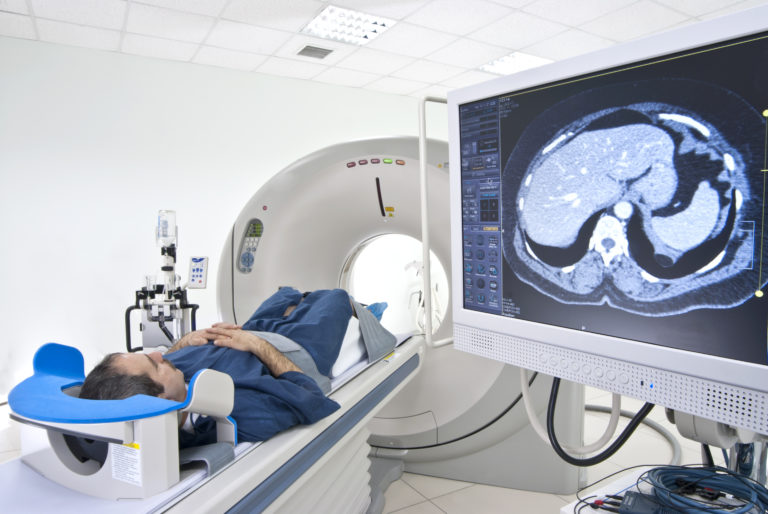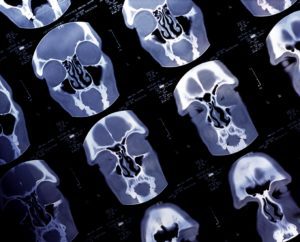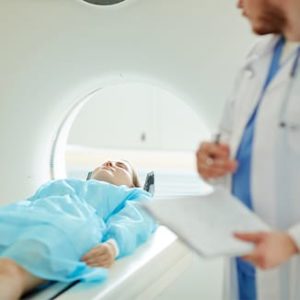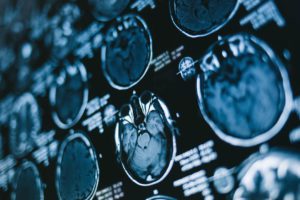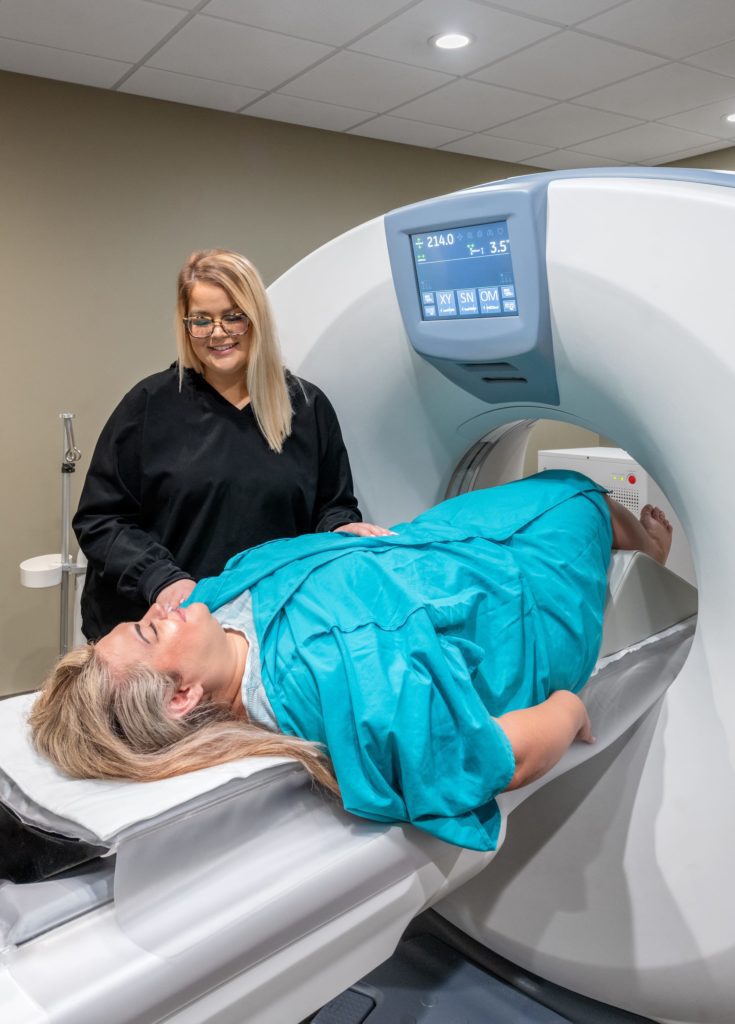A Touchstone Medical Imaging technologist will greet you and guide you to lie down on the CT scanner table. In some cases, we may first administer contrast dye, which can help illuminate blood vessels and other parts of the body.
The table you lie on will slide in and out of the scanner during the scan. At the same time, an X-ray tube and an electronic X-ray detector will rotate around you, capturing the images that will help your doctor make a diagnosis and form a treatment plan. Our technologist may ask you to hold your breath at times during the scan since motion can cause blurred images.
Most CT imaging studies are quick and take only a few minutes to conduct. Following your CT scan, you will leave the imaging center ready to continue your normal, daily routine. Results from the scan will be available to your doctor within hours.
As you prepare for your CT scan, choose comfortable, loose clothing for your appointment, and leave metal objects, such as jewelry, at home when possible. Before entering the CT scanner, remove eyeglasses, dentures and other devices, such as hearing aids, if they contain metal.
Follow any specific guidance your doctor or the Touchstone Medical Imaging team provided. If, for example, your scan will include contrast dye, you may need to avoid eating or drinking for several hours before the scan. Let our staff know about any medical conditions you have and any medications you take when you call to schedule your appointment.
CT scans have many benefits that outweigh any small potential risk. During a CT scan, you’re briefly exposed to ionizing radiation. CT scans use the lowest dose of radiation possible to obtain the needed medical information. The low doses of radiation used in CT scans have not been shown to cause long-term harm. In addition, Touchstone uses the latest technology and imaging techniques that require less radiation than older machines.
Once your CT scan is completed, our radiologists will interpret the images and create a diagnostic report for your medical provider. Your physician’s office will typically receive the report a few days after your imaging scan.
Yes! Your medical records are your property. Touchstone Medical Imaging provides access to your radiology radiologist reports using an AI technology that provides laymen’s term definitions and medical diagrams to explain medical terminology. We recommend reviewing your report, making notes on questions, and speaking with your doctor about your questions and next steps for treatment.
Touchstone offers cardiac scoring at select center locations in Colorado and Texas.
The cost of an CT scan can vary based on the city or state where you get the imaging, location performing the scan, your insurance coverage, they type of CT scan being performed, and more.
Costs vary greatly between hospital based CT scans and outpatient imaging centers, such as Touchstone Medical Imaging. Touchstone Imaging costs up to 60% less than hospital based imaging.
In addition, if you have insurance, it may cover some or most of the cost. Touchstone Medical Imaging is in-network with 99% of major insurance plans. However, you might still owe an out-of-pocket or deductible cost at the time of your scan. Touchstone Imaging will provide an estimate for the amount you will owe based on your insurance coverage at the time of your appointment. You can also talk to your insurance company to understand what they will cover.
In most cases, obtaining a CT scan without a doctor’s order is not possible. Similar to MRIs, CT scans are typically prescribed by healthcare providers based on medical necessity. Here are a few reasons why:
1. Medical Evaluation: Healthcare providers assess your symptoms, medical history, and clinical presentation to determine the need for diagnostic tests like CT scans. They order these tests when they believe they are necessary for accurate diagnosis and treatment.
2. Interpretation of Results: Healthcare providers are trained to interpret the results of imaging tests and determine the appropriate course of action or treatment plan. Ordering a CT scan without proper evaluation by a healthcare professional may lead to misinterpretation or misunderstanding of the results or a gap in healthcare follow up.
3. Insurance Requirements: Health insurance plans often require a doctor’s order for coverage of diagnostic tests. Without a referral, you may face challenges in getting the cost covered by insurance.
If you have specific symptoms or concerns that you believe warrant a CT scan, it’s advisable to consult with a healthcare professional who can assess your situation and determine the appropriate course of action. They can provide a referral if needed.
CT scans can detect a wide range of conditions and abnormalities in various parts of the body. Here are some common uses and what a CT scan can detect:
Injuries and Trauma: CT scans are often used to assess injuries to bones, organs, and soft tissues, making them valuable in emergency situations to diagnose fractures, internal bleeding, or other traumatic injuries.
Infections: CT scans can identify infections or abscesses in different organs and tissues, helping healthcare providers determine the appropriate treatment.
Vascular Issues: A CT angiogram is a specialized form of CT scanning used to visualize blood vessels. It can detect conditions such as aneurysms, blockages, or other vascular abnormalities.
Pulmonary Conditions: CT scans of the chest can detect conditions affecting the lungs, such as pneumonia, lung nodules, or pulmonary embolism.
Abdominal Issues: CT scans of the abdomen can reveal conditions like appendicitis, diverticulitis, inflammatory bowel disease, or kidney stones.
Brain and Neurological Conditions: CT scans of the head can detect abnormalities in the brain, such as tumors, bleeding, or structural issues.
Spinal Conditions: CT scans of the spine can help diagnose problems like herniated discs, spinal fractures, or spinal stenosis.

